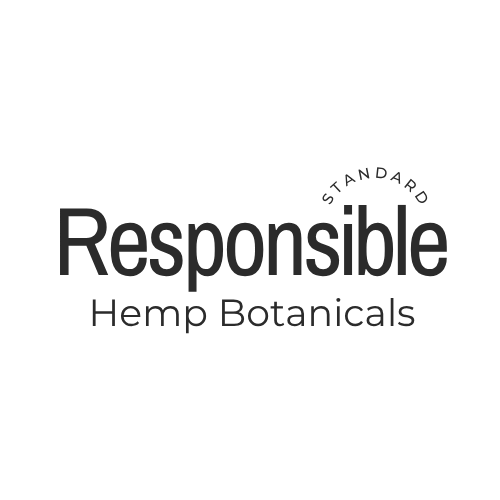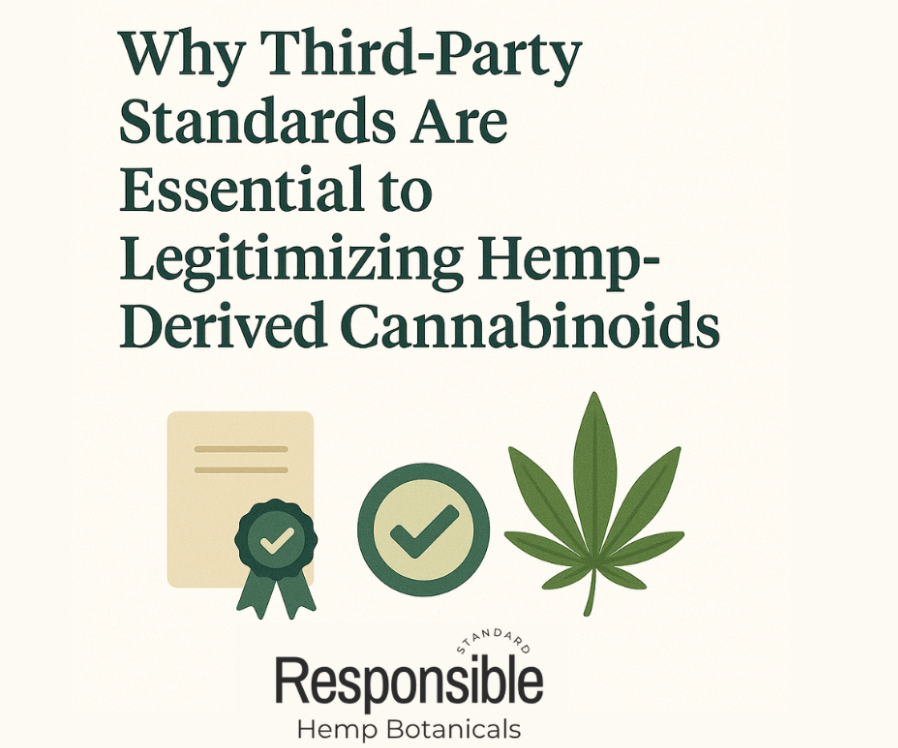Why Third-Party Standards Are Essential to Legitimizing Hemp‑Derived Cannabinoids
Why Third-Party Standards Are Essential to Legitimizing Hemp‑Derived Cannabinoids
In the fast-evolving world of hemp-derived cannabinoids, consumer trust and regulatory clarity are non-negotiable. This was made very clear at the recent Hemp Beverage Expo presented in partnership with the Hemp Beverage Alliance. Without a clear framework for safety, quality, and transparency, both consumers and businesses are left to navigate a confusing and risky market. This is where third-party standards, like the Responsible Hemp Botanicals (RHB) Standard, step in to provide legitimacy, structure, and assurance.
The Problem with Self-Regulation
The hemp industry has grown at a breakneck pace, with CBD and other cannabinoids now appearing in everything from gummies to skin creams. Yet, this growth hasn’t been accompanied by consistent regulations or oversight. Many brands make claims without substantiating them, and product quality can vary dramatically. Contaminants, inaccurate labeling, and unclear sourcing remain persistent issues. This inconsistency not only jeopardizes consumer safety but also undermines trust in the entire category.
Third-Party Standards as a Solution
Independent certification bridges the gap between innovation and responsibility. A robust third-party standard like RHB evaluates products across the entire supply chain—farming, extraction, testing, and packaging. This ensures that only cannabinoid products that meet rigorous quality benchmarks reach consumers. The result? Brands that achieve certification can credibly market themselves as clean, compliant, and transparent.
Third-party standards also help brands stay ahead of regulation. By aligning with protocols that exceed current legal requirements, certified products are more resilient to policy shifts. Certification is not just about today’s market—it’s a safeguard for the future.
Building Trust in a Fragmented Market
For consumers who are new to cannabinoids or skeptical of the space, third-party verification offers clarity. Seeing the RHB seal on a product communicates a commitment to safety, sustainability, and compliance. For retailers, certification provides the confidence to stock cannabinoid products with minimized legal or reputational risk.
This trust extends to investors and business partners, too. Certified brands are more likely to receive funding, form valuable collaborations, and gain access to high-profile distribution opportunities.
Certification as a Strategic Advantage
The Responsible Hemp Botanicals Standard is built specifically for the cannabinoid sector. It goes beyond typical “organic” or “clean label” frameworks by integrating cannabis-specific protocols. These include testing for THC compliance, screening for residual solvents and pesticides, and verifying that hemp inputs are not marijuana-derived. This nuance is critical in an industry that operates in a legal gray zone.
Brands that achieve RHB certification benefit from clear marketing language, reduced liability, and increased consumer loyalty. Certification is more than a badge—it’s a differentiator in a saturated and sometimes mistrusted market.
Moving the Industry Forward
As hemp-derived cannabinoids continue to gain traction in mainstream wellness and functional health spaces, legitimacy matters more than ever. Third-party standards like RHB provide the foundation the industry needs to thrive responsibly. For businesses looking to rise above the noise and build enduring value, certification isn’t a hurdle—it’s a path to leadership.


